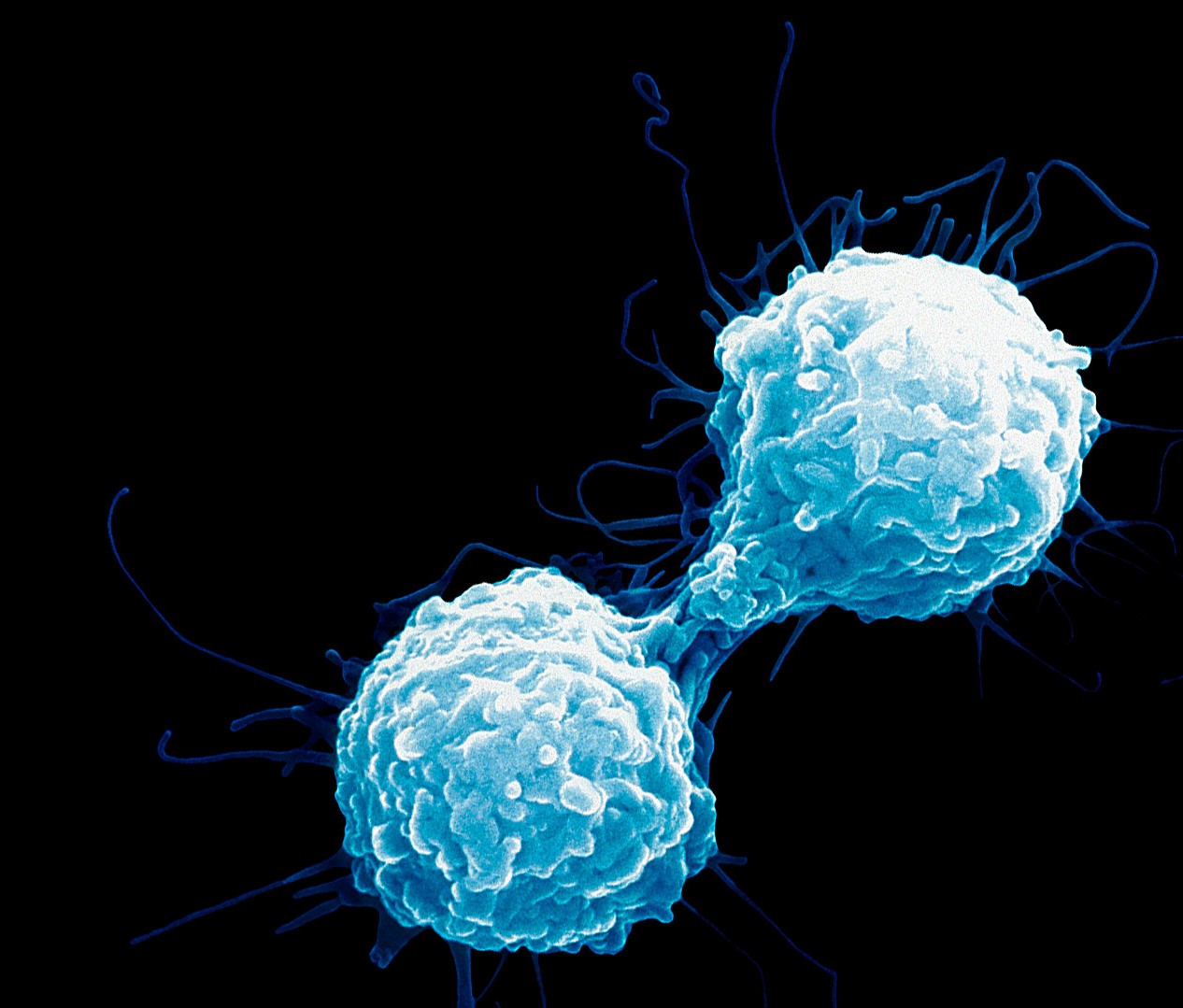
Join to View Full Profile
20 Duke Medicine CirDurham, NC 27710
Phone+1 919-684-8111
Dr. Hanks is on Doximity
As a Doximity member you'll join over two million verified healthcare professionals in a private, secure network.
- Gain access to free telehealth tools, such as our “call shielding” and one-way patient texting.
- Connect with colleagues in the same hospital or clinic.
- Read the latest clinical news, personalized to your specialty.
Summary
- Brent A. Hanks, M.D., Ph.D. is an Associate Professor of Medical Oncology in the Departments of Medicine and an Assistant Professor of Pharmacology and Cancer Biology at Duke University with a dual appointment with the Duke Cancer Institute. He currently serves as the Associate Director of Basic/Translational Research for the Duke Center for Cancer Immunotherapy and Associate Director of Translational Sciences for Duke Melanoma Program. Dr. Hanks completed his medical degree along with a Ph.D. in tumor immunology while in the Medical Scientist Training Program at Baylor College of Medicine. Dr. Hanks went on to complete his internal medicine residency training and his hematology and oncology fellowship training at Duke University. He now manages a basic and translational research lab focusing on understanding biochemical mechanisms of tumor-mediated immune evasion and immunotherapy resistance in cancer. More recently, his lab is also exploring the underlying mechanisms associated with immunotherapy-associated toxicities. In addition to his research efforts, he is also a medical oncologist and manages patients with advanced skin cancers including melanoma and Merkel cell carcinoma. Using an array of experimental techniques, his labs' research goals are to develop novel strategies to enhance the efficacy of checkpoint inhibitor and vaccine immunotherapy while also developing predictive biomarkers to better guide the management of cancer patients with immunotherapeutic agents.
Education & Training
 Duke University HospitalFellowship, Hematology and Medical Oncology, 2008 - 2013
Duke University HospitalFellowship, Hematology and Medical Oncology, 2008 - 2013 Duke University HospitalResidency, Internal Medicine, 2006 - 2008
Duke University HospitalResidency, Internal Medicine, 2006 - 2008 Baylor College of MedicineClass of 2006
Baylor College of MedicineClass of 2006 Baylor College of MedicinePh.D., Tumor Immunology, Best Overall MDPhD Student Award, 1999 - 2004
Baylor College of MedicinePh.D., Tumor Immunology, Best Overall MDPhD Student Award, 1999 - 2004
Certifications & Licensure
 NC State Medical License 2006 - 2025
NC State Medical License 2006 - 2025 American Board of Internal Medicine Internal Medicine
American Board of Internal Medicine Internal Medicine
Awards, Honors, & Recognition
- Clinical Integration Program Award Cancer Research Institute, 2022
- Established Investigator Award Melanoma Research Foundation, 2022
- Duke Strong Start Award Duke University School of Medicine
- Join now to see all
Clinical Trials
- Epacadostat and Vaccine Therapy in Treating Patients With Stage III-IV Melanoma Start of enrollment: 2013 Sep 13
- A Vaccine (CDX-1401) With or Without a Biologic Drug (CDX-301) for the Treatment of Patients With Stage IIB-IV Melanoma Start of enrollment: 2014 Apr 09
- Understanding Immunotherapy Resistance Mechanisms in Advanced Melanoma Start of enrollment: 2016 Jan 01
- Join now to see all
Publications & Presentations
PubMed
- Phase 1b/2 study evaluating safety, efficacy and immune effects of TLR9 agonist cavrotolimod with anti-PD-1 antibodies among patients with advanced solid tumors.Mohammed M Milhem, Trisha M Wise-Draper, Sunandana Chandra, Glenn J Hanna, Douglas E Laux
Journal for Immunotherapy of Cancer. 2025-07-25 - 1 citationsGLI2 Facilitates Tumor Immune Evasion and Immunotherapeutic Resistance by Coordinating WNT and Prostaglandin Signaling.Nicholas C DeVito, Y-Van Nguyen, Michael Sturdivant, Michael P Plebanek, Kaylee A Villarreal
Cancer Research. 2025-05-02 - 6 citationsManagement of Microsatellite Instability High (MSI-H) Gastroesophageal Adenocarcinoma.Katherine I Zhou, Brent A Hanks, John H Strickler
Journal of Gastrointestinal Cancer. 2024-06-01
Press Mentions
 How Cancer Tumors Hijack the Body’s Defense SystemMay 10th, 2024
How Cancer Tumors Hijack the Body’s Defense SystemMay 10th, 2024 Biomarkers Predicts Resistance to Immunotherapies in MelanomaNovember 28th, 2022
Biomarkers Predicts Resistance to Immunotherapies in MelanomaNovember 28th, 2022 Researchers Identify New Way to Unmask Melanoma Cells to the Immune SystemJanuary 18th, 2018
Researchers Identify New Way to Unmask Melanoma Cells to the Immune SystemJanuary 18th, 2018
Grant Support
- Role of the tumor NLRP3 inflammasome in the generation of anti-PD-1 antibody immunotherapy-associated toxicitiesDUKE UNIVERSITY2021–2026
- Role of the tumor NLRP3 inflammasome in the generation of anti-PD-1 antibody immunotherapy-associated toxicitiesNIH/NCI2021–2026
- Investigating the PD-L1:NLRP3 signaling axis as a tumor intrinsic mechanism of adaptive resistance to anti-PD-1 antibody immunotherapyUNIV OF NORTH CAROLINA CHAPEL HILL2020–2025
- Investigating the PD-L1:NLRP3 signaling axis as a tumor intrinsic mechanism of adaptive resistance to PD-1 therapy.NIH/NCI2020–2025
- Overcoming Gli2-mediated Immunotherapy Resistance in MelanomaMelanoma Research Foundation2022–2024
- Role of Tumor-mediated Innate Training in the Pathogenesis of Immune-related Adverse EventsCancer Research Institute2022–2024
- Clinical Biomarker Study of the Tumor NLRP3 Inflammasome and its Role in Anti-PD-1 Immunotherapy ResistanceASCO/CCF2021–2024
- Investigating the Role of a Novel Dendritic Cell Subset within Sentinel Lymph Node Tissues in Immune Evasion and MelanomagenesisDoD2021–2024
- Identifying Immunotherapeutic Resistance Mechanisms in Melanoma Patients Undergoing Active Checkpoint Inhibitor Therapy.Duke Cancer Institute2015–2016
Professional Memberships
- Member
- Society of Immunotherapy of CancerMember
- Member
External Links
- Hanks Lab Websitehttps://www.thehankslab.com/#!
Viewing the full profile is available to verified healthcare professionals only.
Find your profile and take control of your online presence:










